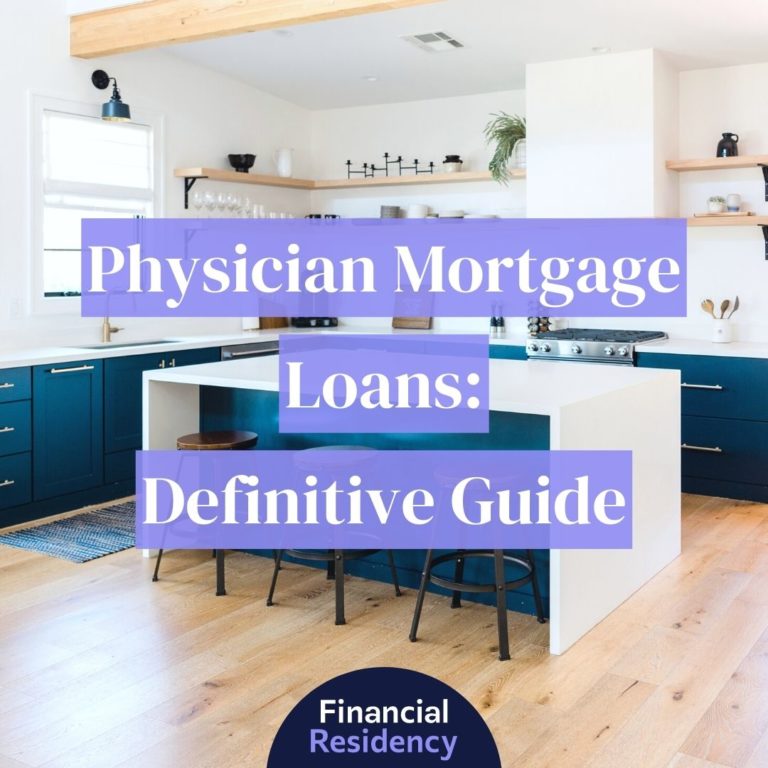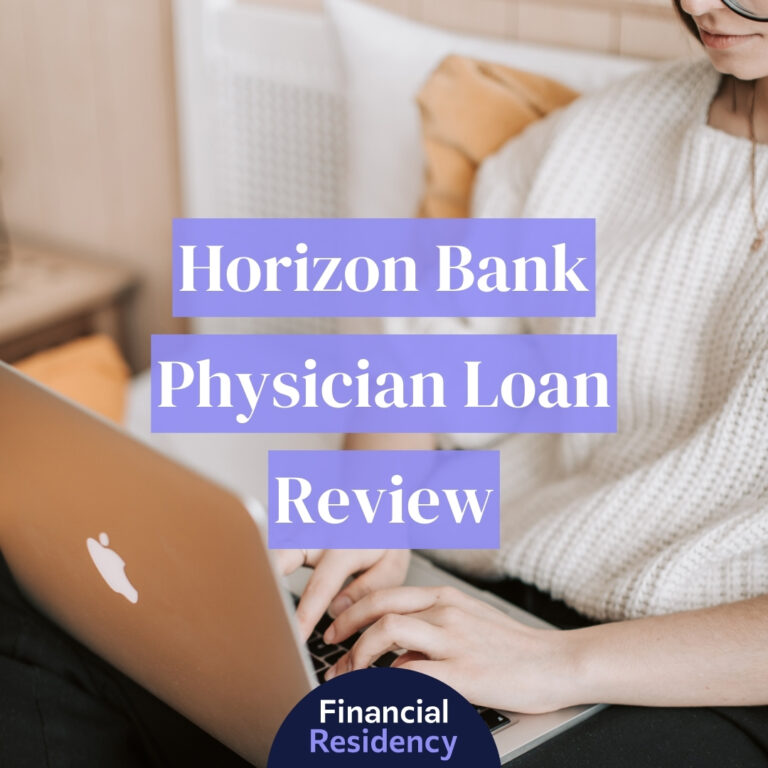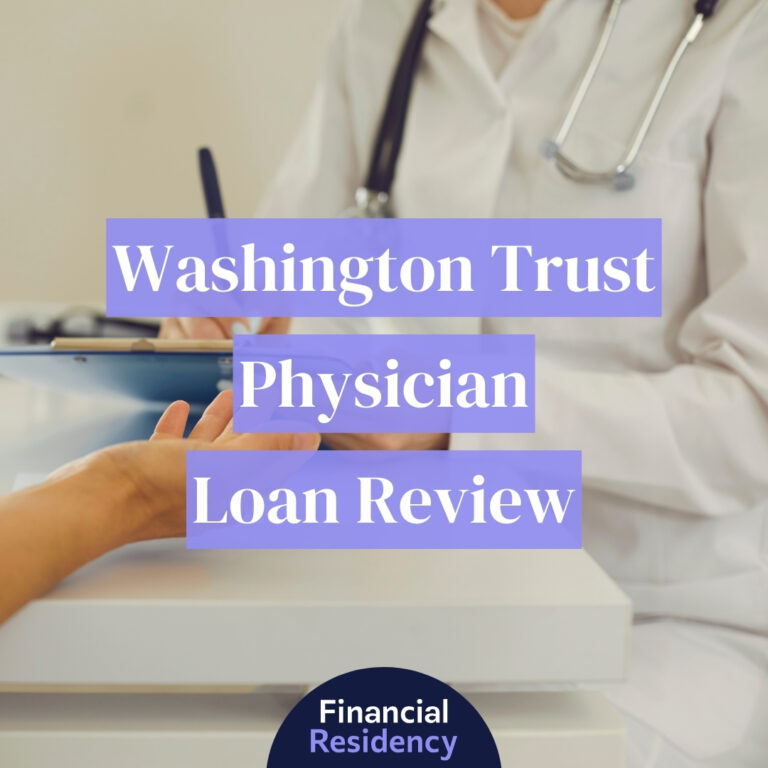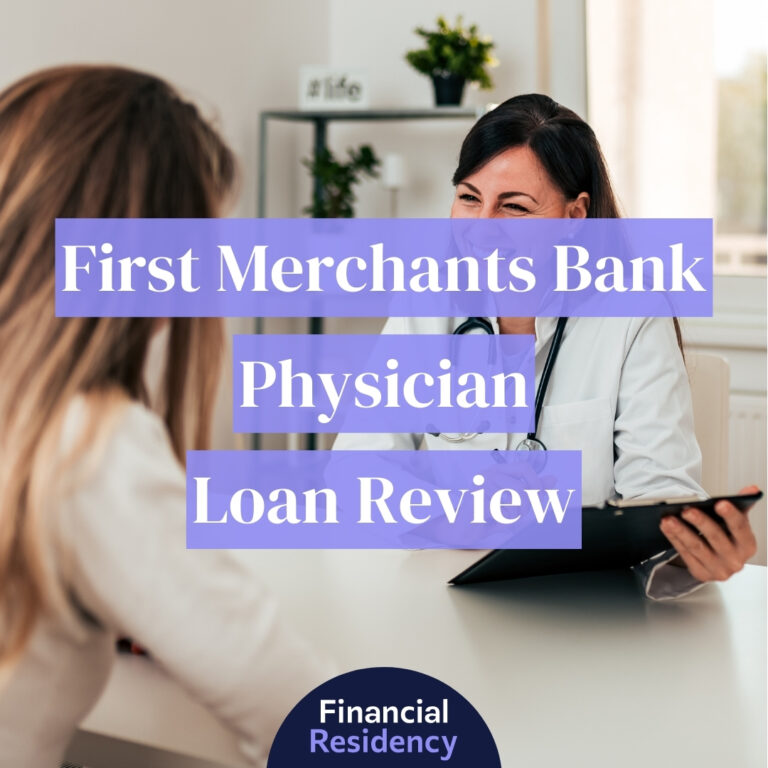The best physician mortgage loans in Maine can help borrowers take charge of their financial goals, especially homeownership, without needing to wait to meet the qualifying terms for a conventional loan.
If you want to join the nearly 5,000 practicing physicians who call The Pine Tree State home, a physician mortgage loan can help you purchase or refinance your dream home.
Maine offers its 1.3 million residents the beauty of the Northeastern seaboard and its delicious changing seasons along with proximity to some of the nation’s most prestigious hospitals and universities.
Navigating the home-buying and financing process can be a daunting and confusing step even for the most highly educated professionals. Working with a lender you trust can make all the difference.
We’ve carefully vetted dozens of mortgage lenders across the country and determined that nine programs deserve to be considered the best physician mortgage loans in Maine.
8 Best Maine Physician Home Loan Lenders
Here are the top physician mortgage loan lenders in ME:
Discover The Best Lenders in Maine Answer just a few questions about your career, where you're buying, and how much you want to borrow. Our service will then show you the exact programs you're eligible for from vetted physician loan specialists who will guide you through every step of the process – obligation-free!
1. BMO Bank
- BBB Grade: A+
- JD Power Score: 805
BMO Bank offers special financing options to medical professionals at any stage in their careers through its Physicians’ Loan Program. Licensed medical professionals with the following degrees are included:
- MD
- DO
- DDS
- DMD
Residents and fellows are also eligible. While it is true that borrowers at any stage in their careers can qualify for the program, later career physicians are available for the same down payment amounts.
Early-career medical professionals can qualify for 95% financing on loans up to $1.5 million or 90% on loans up to $2 million. Borrowers who have been practicing for more than 10 years are limited to 90% financing regardless of the total loan amount.
Loans may be used to purchase or rate/term refinance a 1-2 unit property, single-family home, condominium, or townhouse that will be used as an owner-occupied primary residence. PMI isn’t required.
Underwriters will make exceptions for student loan debt using flexible debt-to-income (DTI) guidelines. Incoming residents and physicians can qualify using a future-dated employment contract that specifies base pay and a start date within 90 days of closing.
Borrowers who open a BMO checking account and enroll in AutoPay for monthly mortgage payments can qualify for a $500 closing cost discount. The discount can further offset the costs of purchasing a home for medical professionals with limited savings.
2. Citizens Bank
- BBB Grade: B+
- JD Power Score: 818
Citizens Bank’s physician mortgage loan program is open to residents, physicians, and dentists with an MD, DO, DDS, or DMD degree.
Borrowers will be required to put a 5% down payment on loans up to $850,000, a 10% down payment on loans up to $1 million, or a 15% down payment on loans up to $1.5 million. PMI is waived with all down payment amounts.
The loan program provides financing for the purchase or refinance of a primary residence. Construction loans are also an option for borrowers interested in building a new home. Existing homeowners may pursue cash-out refinancing options.
Fixed and adjustable-rate mortgage products are available. Citizens Bank’s fixed-rate mortgage products include 10, 15, 20, and 30-year repayment terms. The adjustable-rate mortgage products can be structured as 3/1, 5/1, 7/1, or 10/1 terms.
3. Evolve Bank & Trust
- BBB Grade: B
- JD Power Score: N/A
Compared to other lenders in Maine, Evolve Bank & Trust offers one of the most inclusive physician mortgage loan programs on the market. The Medical Professional Program is open to healthcare professionals within the first ten years of their careers with one of the following degrees:
- MD
- DO
- DDS
- DMD
- PA
- NP
- DVM
- CRNA
- DC
- OD
- DPM
- PharmD/RPH
- Clinical Nurse Specialists
Residents and fellows also qualify. Future-dated employment contracts will be accepted.
Borrowers can secure up to $1 million without a down payment, but other low down payment options are available. Loans up to $1.25 million require a 5% down payment and loans up to $1.5 million.
The program doesn’t have an explicit maximum loan amount, but a 15% down payment will be required on loans up to at least $2 million. PMI is waived.
Minimum cash reserves will be required, but these amounts will depend on the loan amount as well. Gift funds and non-occupant co-signers may be used for borrowers who otherwise wouldn’t qualify on their own.
Loans may be used to purchase or refinance a 1-4 unit residence or condominium. Construction financing options are also available.
Evolve Bank & Trust also offers fully underwritten pre-approval at no cost, so borrowers have a good idea of what to expect throughout the process. Underwriters will use their common sense and make flexible considerations on a case-by-case basis.
Discounts on closing costs may be available.
4. Flagstar Bank
- BBB Grade: NR
- JD Power Score: 781
Flagstar Bank is the most inclusive physician loan program on this list because it extends to professions outside of healthcare. Borrowers must be within the first ten years of their careers to qualify, be actively practicing, and hold one of the following degrees:
- Medical Resident (Educational License)
- Medical Doctor (MD)
- Doctor of Dental Surgery (DDS)
- Doctor of Dental Medicine (DMD)
- Doctor of Optometry (OD)
- Doctor of Ophthalmology (MD)
- Doctor of Pharmacy (PharmD/RPH)
- Doctor of Podiatric Medicine (DPM)
- Doctor of Osteopathy (DO)
- Physician Assistant (PA)
- Registered Nurse (RN)
- Nurse Anesthetist (CRNA)
- Nurse Practitioner (NP)
- Clinical Nurse Specialist
- ATP Pilot
- Certified Public Accountant (CPA)
- Attorney (JD)
- Veterinarian (DVM)
Borrowers with a 720 minimum credit score can qualify for 100% financing on loans up to $1 million, but low down payment options are available for loans up to $1.5 million. Like other doctor mortgage loans, it does not require PMI.
Borrowers who don’t have sufficient savings to cover all the costs of purchasing a home can use gift funds from friends or family members to qualify.
In addition to the aforementioned requirements, borrowers must be first–time home-buyers or have not purchased a home within the last three years.
Loans may be used to purchase a single-family home, condominium, or townhouse.
All financing options provided by the Professional Loan Program will be structured as adjustable-rate mortgages. Borrowers can choose an introductory fixed interest rate of 60, 84, or 120 months. After this period, the interest rate will reset at six-month intervals to the current market rate.
Adjustable-rate mortgages often have lower interest rates than conventional mortgages, but it’s important to budget carefully because the fluctuating interest rate can lead to
5. Huntington Bank
- BBB Grade: A+
- JD Power Score: 821
Huntington Bank extends its physician mortgage loan program to medical doctors with an MD, DO, DMD, DVM, or DDS degree.
In addition to a qualifying degree, borrowers must be able to demonstrate sufficient income, cash reserves, and active employment. Minimum reserve requirements vary depending on the loan amount.
Borrowers may secure 100% financing on loans up to $1 million, 95% financing on loans up to $1.25 million, or 90% financing on loans up to $2 million. PMI isn’t required.
The down payment option and maximum loan amount borrowers qualify for will depend on credit history and income. Huntington Bank’s physician home loans are limited to primary residences.
Fixed and variable interest rate options are available. There are no penalties for prepaying before the loan term expires.
6. KeyBank
- BBB Grade: A+
- JD Power Score: 794
KeyBank’s Medical Professional Mortgage Program will extend up to $3.5 million with 95% financing to qualified borrowers in the medical field.
While the program is limited to medical doctors and dentists, it is more inclusive of researchers and clinical professors than the average physician mortgage loan program.
Borrowers must hold a current license and one of the following degrees:
- MD
- DO
- DPM
- DDS
- DMD
Unlike many physician loan programs, the Medical Professional Mortgage Program provides financing for primary residences and owner-occupied second homes.
Eligible property types include attached or detached single-family homes, condominiums, or properties in planned unit developments.
Loans may be used to purchase a new home or refinance an existing one. Rate/term and cash-out refinancing options are available.
Loan officers will provide personalized and knowledgeable service so borrowers can feel confident at every step in the home-buying process.
7. TD Bank
- BBB Grade: A+
- JD Power Score: 837
TD Bank’s Medical Professional Mortgage Program is open to residents, fellows, practicing physicians, dentists, and oral surgeons with one of the following degrees:
- MD
- DO
- DDS
- DMD
- OMS
Self-employed physicians and private practice owners may also be approved. Borrowers must be within the first 10 years of their careers to qualify.
Loans may be used to purchase or refinance a primary residence. Eligible property types include single-family homes, condominiums, and properties in planned unit developments. Properties in co-op buildings may be approved in select markets.
Fixed and adjustable-rate mortgage products are available with the following down payment options:
- 0% down payment on loans up to $1 million
- 5% down payment on loans up to $1.5 million
- 01% down payment on loans up to $2 million
The 10.01% down payment on loans up to $2 million is one of the lowest down payment options for that sum of money. Private mortgage insurance requirements are waived for all down payment options.
TD Bank isn’t transparent about how its calculators determine the DTI ratio, but it advertises that it will be flexible with student loan debt.
Upcoming residents and doctors may use an employment contract to qualify if they’d like to purchase a home before jumping full force into their hectic careers.
8. U.S. Bank
- BBB Grade: A-
- JD Power Score: 820
U.S. Bank provides up to $2 million in home loan financing for residents, fellows, medical doctors, and doctors of osteopathic medicine with a 710 minimum credit score.
The program offers various down payment options, including the following:
- 5% on loans up to $1 million
- 10% on loans up to $1.5 million
- 15% on loans up to $2 million
The program has a $2.5 million maximum loan amount. U.S. Bank’s loan officers provide a guided home-buying experience through thorough checklists and years of hands-on experience navigating the housing market.
U.S. Bank is also different from many physician loan programs because it doesn’t exclude student loan debt. However, it will be more lenient than conventional loan programs by using 2% of the total loan balance for those in deferment.
How Physician Mortgage Loans Work in Maine
Physician loans in Maine don’t work much differently than in other areas of the country. Borrowers with a qualifying degree can apply for a physician loan without putting any money down in some cases. In other cases, borrowers will be required to put down 5–15%.
Down Payment & Private Mortgage Insurance
The required down payment will depend on the total loan amount and the borrower’s credit background, but physician mortgage loans never require private mortgage insurance. Private mortgage insurance protects the lender in case of default when borrowers have less than 20% equity in their homes.
However, it increases the monthly mortgage payment, which can become burdensome for borrowers trying to pay off student loan debt, save for retirement, open a private practice, or grow other investments while living their daily lives.
Waiving this requirement allows borrowers to pursue their dreams of homeownership without sacrificing their other priorities and goals.
Flexibility with Student Loan Debt
Physician mortgage underwriters are also kind to borrowers with significant student loan debt. Because medical school and other types of advanced training are expensive endeavors, graduates often have hundreds of thousands of dollars in debt––not including undergraduate student loans and credit card debt.
Despite their significant debt balances, medical professionals are more likely to pay off their student loans or access forgiveness through public service.
As such, physician mortgage underwriters see less risk in providing financing to these borrowers, even when they have debt-to-income ratios outside the typically accepted range.
For this reason, underwriters will exclude some or all student loans from DTI ratio calculations. In general, student loan payments deferred for 12 months or more are the most likely to be excluded, but some lenders will make allowances for borrowers on an income-driven repayment plan.
Flexibility with Work History
Physician mortgage lenders understand that many medical professionals have dedicated years of their lives to their medical training––years that many of their peers have spent building work history.
Upon graduation, these medical professionals are highly sought after and employable, so they catch up quickly, but not quickly enough to qualify for most conventional mortgages directly out of school.
Physician loans eliminate this roadblock by working with borrowers who have signed an employment contract or residency agreement.
Typically, lenders expect borrowers to start their employment within three months of closing on their homes. Throughout that time, they are still wholly responsible for all debt obligations, including mortgage payments.
Higher Minimum Credit Score Required
With all that said, physician loans aren’t more lenient than conventional mortgages across the board. In some ways, physician mortgage loans can be more strict.
For example, physician lenders want to see a higher minimum credit score to compensate for the risk they take on for being more lenient.
Pros and Cons
Considering the pros and cons is a key part of making a balanced and informed decision. Every financial decision has its advantages and disadvantages and how these affect you will depend on your unique financial situation.
We’ve prepared a few notable items to consider while you try to decide if a physician mortgage loan in Maine is right for you.
Pros
- Open to medical residents and new doctors: Doctor mortgage loan programs are available to medical residents with their medical licenses.
- Low down payment options: Physician loans allow cash-poor medical professionals to purchase their dream homes with little to no money down.
- No PMI: Private mortgage insurance isn’t required with physician mortgages, regardless of the down payment amount.
- Can be used to refinance: Physician mortgage loans may be used to rate/term or cash-out refinance a property you already own.
- Larger loan amounts: Physician home loans aren’t held to the same loan limits set by the Federal Housing Financing Agency, so borrowers have access to larger sums of money.
- Flexible debt-to-income ratio calculations: Physician loans have flexible underwriting guidelines––often excluding or using a fraction of the total loan balance––so it’s easier for early-career medical professionals to qualify.
- Buy before you start your new job: Physician loan officers will accept employment contracts for new jobs that start within 60–90 days of closing.
- More competitive than FHA loans: Some sellers are hesitant to work with FHA loans due to the stringent property requirements and lower loan limits. Physician loans allow borrowers to make compelling offers, even in competitive real estate markets.
Cons
- Higher interest rates: Physician loans tend to have slightly higher interest rates than conventional loans of the same amount. Some loan programs can only be structured as adjustable-rate mortgages, which also tend to cost more over the life of the loan.
- Primary residence restrictions: Many physician mortgages are limited to the purchase or refinance of an owner-occupied primary residence.
- Varying medical professional eligibility: There isn’t a standard list of eligible healthcare professionals who can qualify for physician loans. Every lender has different degrees it will accept.
- Good-to-excellent credit: Borrowers will need a 700 minimum credit score in many cases to qualify for a physician loan, which is much higher than the credit score requirements for conventional loans and government-sponsored mortgages.
- Large monthly mortgage payment: Because physician loans extend larger sums of money, it can be easier for borrowers to live outside their means. Large monthly mortgage payments can become a burden if you don’t budget carefully.
Frequently Asked Questions
Is a physician loan in Maine the same as a conventional loan?
No, a physician loan isn’t the same as a conventional loan. A physician loan is a specially designed mortgage product for medical professionals whereas a conventional loan is open to the general public.
Physician loans are meant to help doctors, who are likely to access loan forgiveness and become six-figure income earners, overcome the roadblocks they may face on their paths to homeownership while they’re still early in their careers.
However, conventional loans are the most popular mortgage program in the country.
What is the mortgage rate in Maine for a doctor with a 680 credit score?
The mortgage rate for a doctor with a 680 credit score depends on a number of factors, including current market rates, loan amount, down payment, and geographic location.
Some physician mortgage loan lenders don’t work with borrowers who don’t meet their minimum score requirements whereas others will work with lower credit scores, they’ll just require a larger down payment.
Generally, the better your credit history, the more favorable your loan terms are likely to be.
What is the average physician loan term?
The average physician loan term is 15 or 30 years, but repayment periods can vary between fixed-rate and adjustable-rate mortgage products. Some lenders offer 10-year mortgage terms, but that can be an outlier. You can potentially extend your loan term by refinancing.
How long does it take for physicians to pay off student loans?
The average physician pays off their student loan debt in eight years according to a 2019 survey conducted by Weatherby Healthcare. Approximately 35% of physicians pay off their student loan debt within five years of graduating.
Physicians who work in the nonprofit sector for at least 10 years can access federal student loan forgiveness through the Public Service Forgiveness Program.
Who is a Physician Loan in Maine Best For?
It can be difficult to make a big financial decision when you are overwhelmed with all your options.
If you’re struggling to decide if a physician loan in Maine is the best choice for your long-term plans, consider the below example scenarios of demographics who stand to benefit a lot from this unique financing option.
1. New Doctors Making Student Loan Payments
Recent graduates and new doctors just getting through footing in their careers aren’t close to the peak of their earning potential yet, but it can be financially wise to focus on paying off debt as quickly as possible.
For new doctors focused on paying off student loan debt by consistently making extra payments, it can be unrealistic to save for a sizable down payment and closing costs at the same time.
A physician mortgage loan can make it possible to accomplish two goals at one time without delaying dreams of homeownership.
2. Veterinarians Comparing Their Loan Options
Veterinarians with excellent credit may want to shop around various loan options to find the best rate. While not all physician loan programs are inclusive of veterinarians, those that are can be very compelling.
Veterinarians with a 700 minimum credit score can save on their monthly mortgage payments by choosing a loan program that doesn’t require PMI, regardless of the down payment amount.
3. Doctors Relocating To Continue Their Careers
Relocating is a common reality for medical professionals at the beginning of their careers. Not only is relocating a costly undertaking, but it can feel destabilizing.
Physician mortgage loan programs often work with borrowers who haven’t yet started their new jobs so they can get settled into their new lives before jumping into work.
The lower down payment requirements and waived PMI can make it possible to move and set down permanent roots without leaving borrowers cash-poor on the other side of homeownership.
4. Qualifying Healthcare Professionals Without a Down Payment
Saving for a down payment while going to school and beginning their careers can feel like an impossible feat for healthcare professionals.
VA loans have no-money-down financing options for current and previous members of the military, but that privilege isn’t extended to civilians.
Physician loans can help other medical professionals, such as physician assistants, nurse practitioners, clinical nurse specialists, and nurse anesthetists, purchase a home with a minimal down payment.
Moving to a Different State?
Click on the state you are moving to and get the best physician mortgage loan lenders in that state:
Learn more about physician home loans.




